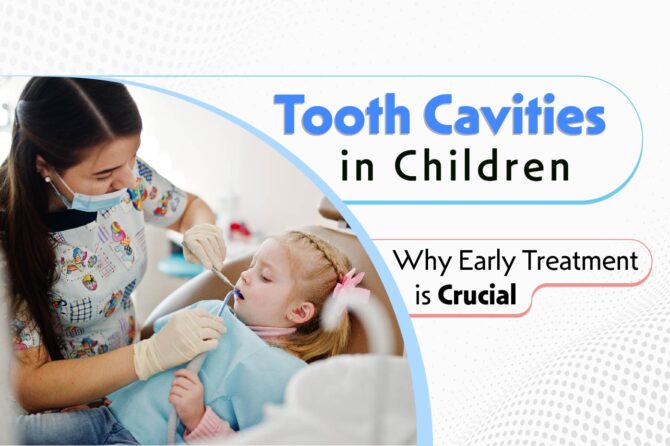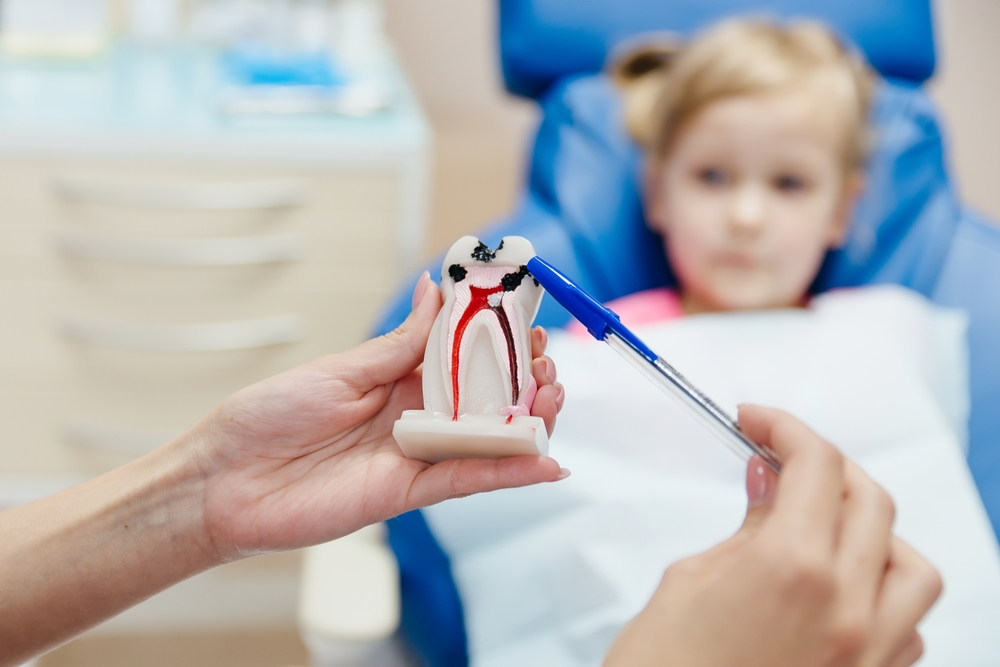
Tooth Cavities in Children: Why Early Treatment is Crucial
Tooth cavities in children can be a cause of concern for parents. Understanding the importance of early treatment is crucial for ensuring the oral health of your little ones. In this blog, we will delve into the causes, prevention strategies, and treatment options for tooth cavities in children.
What is Tooth Cavities in Children?
Cavities, also known as dental caries, are decayed areas in the teeth resulting from bacterial plaque. In children, cavities commonly develop due to poor oral hygiene, sugary diets, and irregular dental check-ups. These small holes or openings in the teeth can lead to pain, infection, and compromised oral health if left untreated. Regular dental care and preventive measures are crucial to ensure a cavity-free smile in children.
Should Tooth Cavities in Children Be Treated?
The Urgency of Treatment
While baby teeth are temporary, their care is paramount. Cavities should be treated immediately for several reasons. Prompt treatment can prevent the spread of infections, reduce treatment costs, and, if caught early, may even reverse the damage.
Cavity Development Stages
Understanding the stages of cavity development is crucial. From the initial appearance of white spots indicating tooth decay to advanced stages affecting the tooth’s pulp and surrounding structures, the progression of cavities can have serious consequences if left untreated.
Causes of Tooth Cavities in Children
- Poor Oral Hygiene: Inadequate brushing and flossing allow plaque to build up, leading to cavities.
- Diet High in Sugar: Consuming sugary snacks and beverages provides fuel for cavity-causing bacteria.
- Infrequent Dental Check-ups: Irregular visits to the dentist may result in undetected cavities.
- Lack of Fluoride: Insufficient fluoride exposure, either through water or dental products, increases cavity risk.
- Deep Tooth Grooves: Some children may have deeper tooth grooves, making them more prone to cavities.
- Bacterial Transmission: Cavities can be contagious, with bacteria spreading through shared items like utensils.
- Genetics: Genetic factors can influence susceptibility to cavities in children.
Baby Teeth Cavity Treatment Options
Treatment options for cavities depend on the stage of development. While early-stage cavities with white spots may be reversible through remineralization, more advanced cavities may require interventions such as fillings, bridges, crowns, onlays, or veneers. In severe cases, oral surgery, root canals, or tooth extraction may be necessary.
Consequences of Untreated Cavities
Failure to treat tooth cavities in children can lead to severe consequences. As cavities progress through the stages, the risk of infection spreading to the gums and bones increases. Untreated cavities can reach a point where sepsis becomes a potential threat, emphasizing the critical need for early intervention.
Do Cavities in Baby Teeth Affect Permanent Teeth?
Yes, cavities in baby teeth can affect permanent teeth. Baby teeth play a crucial role in maintaining space for the eruption of permanent teeth. If a cavity in a baby tooth is left untreated, it can lead to premature tooth loss. This loss of space can result in misalignment and crowding issues when permanent teeth start to come in. Additionally, untreated cavities can cause infections, which may affect the development of permanent teeth and overall oral health. Therefore, addressing cavities in baby teeth promptly is essential to prevent potential complications for permanent teeth. Regular dental check-ups and good oral hygiene practices are key in maintaining optimal oral health for children.
Choosing the Right Treatment
Consulting a Pediatric Dentist
The first step in addressing cavities is to have a pediatric dentist examine your child’s teeth. Through manual examinations, sensitivity checks, and X-rays, dentists can diagnose the stage of cavities and recommend the most suitable treatment options. Early detection enables timely and effective intervention.
Preventing Tooth Decay in Young Children
Tooth Cavity Prevention
Preventing tooth decay in young children involves adopting healthy eating and cleaning habits early on. Avoiding putting babies to bed with bottles, eliminating sweet drinks from bottles, and transitioning to cups are essential steps. Introducing a variety of nutritious foods and regular dental checks further contribute to prevention efforts.
Cleaning Habits for Children
Initiating teeth cleaning as soon as the first tooth emerges is crucial. Using age-appropriate toothpaste, regular brushing along the gum line, and adult supervision until children can brush effectively on their own are vital components of a good oral hygiene routine.
Conclusion
In closing, let’s talk heart-to-heart. Yes, Kid’s Dental Studio is here for you, ready to ensure your child’s smile stays bright. But, truth be told, the real magic happens at home. It’s about those daily brushes, teaching good habits, and keeping sugars at bay. Because, more than visiting a dental studio, it’s about not needing to rush there. Kid’s Dental Studio is your partner, but the real superheroes are you and those little teeth warriors at home.
Leave a reply

Fantastic post! The insights on tooth cavities in children and the various treatment options available are incredibly helpful for parents. Understanding the different approaches to managing and treating cavities can make a big difference in maintaining a child’s oral health. Thanks for sharing this valuable information!
Reply